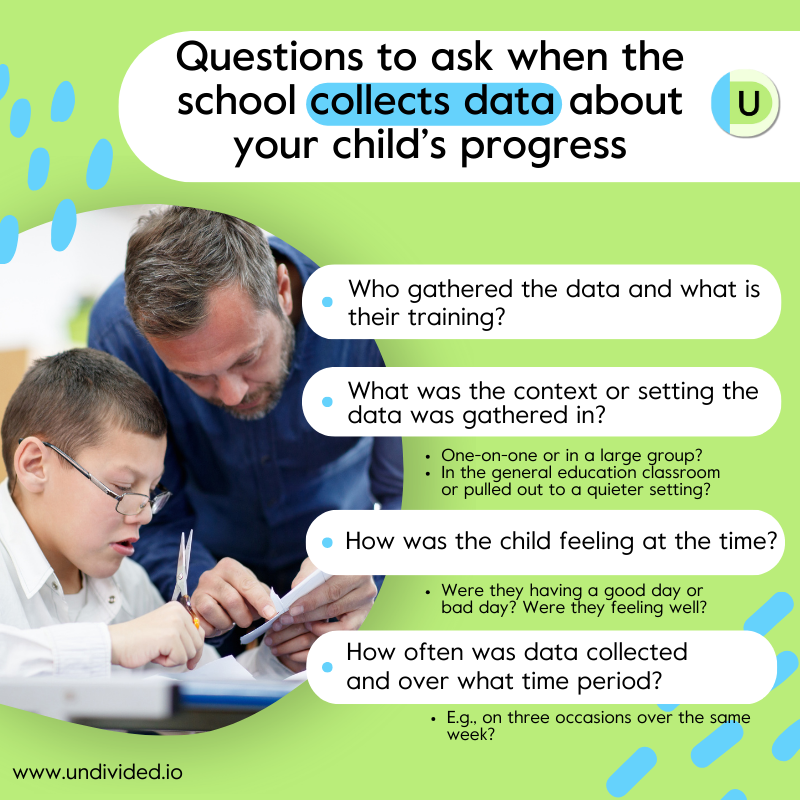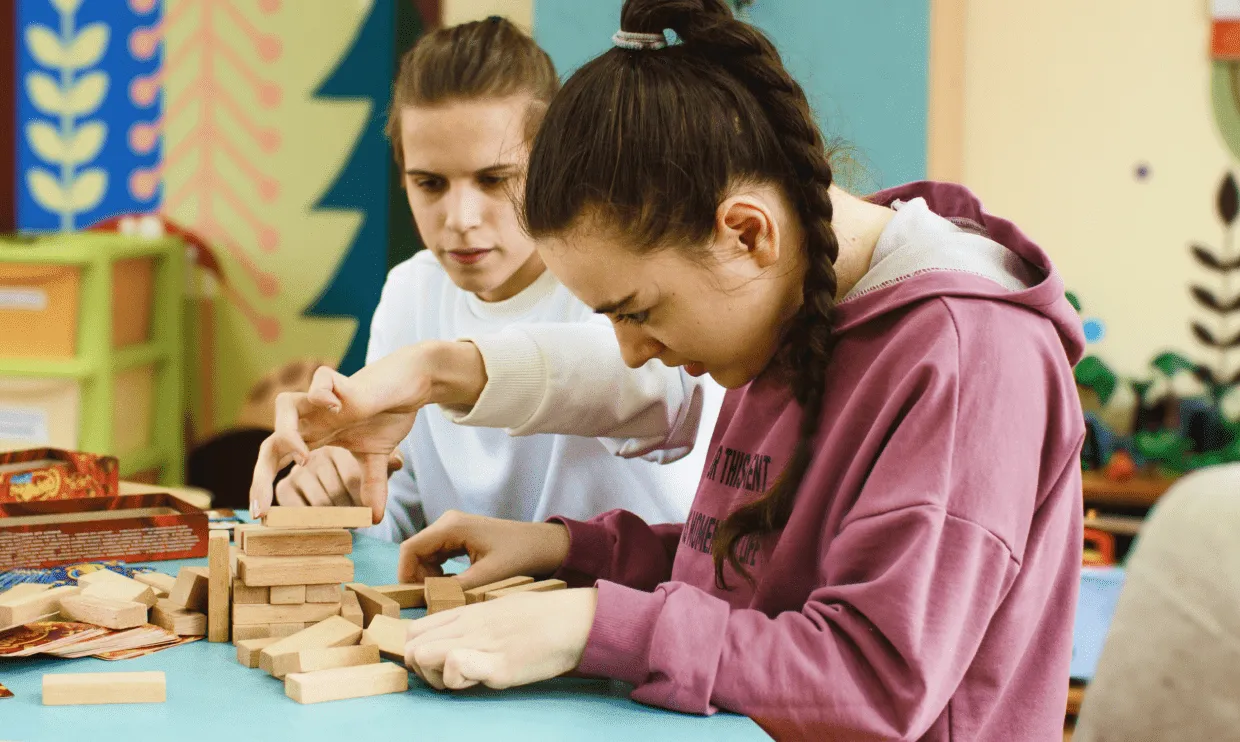Progress reports, baselines, hard data, service logs, present levels, school metrics, — sounds like a giant word salad, right? It’s easy to wonder — do these numbers and reports really matter? Can’t we just save all the data talk for the annual IEP meeting? But understanding how our kids’ progress is measured and reported, and getting regular updates, is kind of a big deal. Data is basically the backbone of the IEP process — every goal and service your child gets is built on that data, which is why it’s so important for us parents to know that we have the right to see it. We want to see those regular updates rolling in throughout the school year so we know how our kids are doing and where they’re headed.

Let’s play true or false: progress tracking edition — and find out why collecting and monitoring data is so important.
True or false: every IEP goal is measured by numerical data and must have a number attached to it. True — but the data used in monitoring a child’s progress is only as good as the data gathering process. The good news: you can ask questions and even request the data that was collected to track a goal. Find out the ins and outs in our article Progress Reporting for IEPs.

True or false: being “data driven” also means looking at (and comparing) data about schools, districts, and counties. True — school data like special education enrollment numbers, CAASPP scores for ELA and Math, graduation rates, suspension and expulsion statistics, and teacher salaries can all help inform decisions about your child’s education. Read more about how and where to find these metrics in our article How Do Parents Access Data About Their Kids’ Schools?

True or false: PLOP isn’t just a funny word; it’s a key part of your child’s IEP. True — PLOPs (present levels of performance) outline a child’s abilities, strengths, and needs, helping to shape their goals, services, and supports! Find out more about PLOPs and IEPs in our article about the Key Parts of an IEP.
True or false: if your child’s progress report shows little progress, you can request service logs. True – service logs can help you confirm if services are being provided as outlined in the IEP! Find out more ways to make sure your child’s IEP is being implemented in all the ways the team agreed it should be in our article How to Make Sure Your IEP Is Being Followed (and What to Do If It Isn’t).

How Undivided can help you get organized
True or false: parents have to spend endless hours on their own figuring out what’s out there and how they get it. False! In this explainer video, we show you how Undivided can be your ultimate organizational sidekick — from keeping track of appointments and school documents to helping you navigate complex systems like IEPs and Medi-Cal, our resources and expert support are designed to lighten your load and keep you on track.
→ Add this goal to your Undivided account for a step-by-step guide to learn how to follow up with everyone on your child’s IEP team to make sure the accommodations and services are being provided as written in the IEP.
→ Undivided members can access our Yearly Progress Chart, which makes it easier to compare a previous year’s baseline to this year’s baseline (with helpful examples, too!) to determine whether progress has been made. Sign up for a free account here and start exploring our digital platform today!

As one parent told Undivided: “I thought I was organized, but THIS is organized. With Undivided, I can free up space in my brain.”

Big news, California parents! Back in September, Governor Gavin Newsom signed a game-changing set of bills aimed at improving life for individuals with developmental disabilities and their families. The new legislation introduces key updates across Regional Center operations, special education, and the justice system. Highlights include in-home Regional Center respite services now available to foster families, a complete ban on prone restraints for students with no exceptions, the addition of “emotional disability” as an IEP eligibility category, and more! We’ve pulled together all the details so you can see what’s changing and how it will impact the support, services, and rights for your kiddos. Let’s dive into New California Legislation Impacting Families of Kids with Disabilities!

RSVP now → Undivided and Fusion Academy
We’re excited to partner with Fusion Academy to bring you a virtual event exploring education for families with diverse learning needs. You’ll learn all about personalized learning approaches and public benefits, as well as how to foster collaboration and support for students with diverse needs. Join us on Thursday, December 12 at 5:30 p.m. PT for the event featuring Lisa Concoff Kronbeck and Lisa Carey, Undivided’s specialists in public benefits and special education, who will share their insights and answer audience questions! Register for the FREE event here→
Expert Office Hours
If you’re an Undivided member, join us for a live Q&A on Wednesday, December 11, at 12:00 p.m PT with Undivided Public Benefits Specialist Lisa Concoff Cronbeck. Lisa will be available to answer your questions directly on Zoom about funding therapies, social rec, and medical supplies through Medi-Cal, insurance, Regional Center, and more! If you’re not an Undivided member yet, get started here to join us for Office Hours!

- Need some tips for tracking your child’s progress through data? Check out the latest video in our Explainer Series→
- What if the data shows that your child isn’t meeting expectations? Here are tips for talking about data with your IEP team→
- ‘Tis the season for holiday gatherings of parents, siblings, and friends! Join our private Facebook group to find a local meetup near you→
- Undivided co-founder Jason Lehmbeck is building a directory of people who work to help kids and families thrive. Check it out on LinkedIn→
- Ditch the pile of papers — simply take a photo of your child’s work samples, progress reports, and more, and upload to your Undivided binder to keep everything organized! Get started→



























